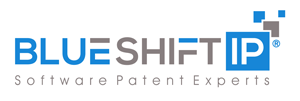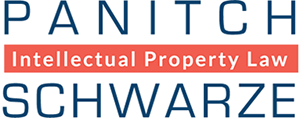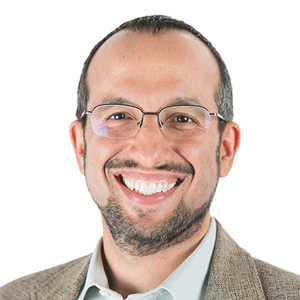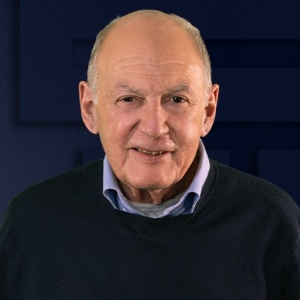Robert Plotkin
Software Patent Lawyer & Founding Partner | Blueshift IP, LLCJeffrey W. Gluck, Ph.D.
Partner | Panitch Schwarze Belisario & Nadel LLPOrlando Lopez, Ph.D.
Partner | CM Law PLLCAI Patent Eligibility: Navigating the USPTO’s Latest Guidance and What It Means for Innovation | Live Webinar
Broadcast Date: Tuesday, September 9, 2025, from 12:00 PM to 1:30 PM (ET) | On-Demand 24 hrs later
As artificial intelligence (AI) becomes increasingly embedded in modern innovation, securing patent protection for AI-based inventions presents both new opportunities and growing challenges. The United States Patent and Trademark Office (USPTO) has issued updated guidance on evaluating AI technologies, but legal uncertainty remains—particularly around what qualifies as patent-eligible subject matter.
Join Robert Plotkin, Software Patent Lawyer & Founding Partner at Blueshift IP, LLC, Jeffrey W. Gluck, Ph.D., Partner at Panitch Schwarze Belisario & Nadel LLP, and Orlando Lopez, Ph.D., Partner at CM Law PLLC, will delve into the USPTO’s evolving approach, explore the implications of recent case law including Recentive v. Fox, and share practical tips for drafting and prosecuting stronger AI-related patent applications. From examining what constitutes “non-generic” AI to adapting claim strategies for emerging AI structures, this session will equip patent practitioners, innovators, and in-house counsel with the tools to navigate this rapidly shifting landscape.
Key Topics:
- USPTO’s current approach to AI patent eligibility
- Differences between USPTO guidance and Federal Circuit requirements
- Insights from Recentive v. Fox and its implications on AI patent claims
- Understanding when AI is considered “generic” vs. non-generic under patent law
- Strategies for identifying differentiating elements in AI-based inventions
- Best practices for drafting application- or domain-specific claims to demonstrate “practical application”
- Approaches to claiming AI as part of a larger method or system
- Drafting considerations for training AI models
- Updating your boilerplate language in AI-related patent specifications
- Treatment of AI performing calculations or decision-making vs. generic computer implementation
- The status and significance of USPTO Example 39 (neural network training claims)
- How to properly disclose and claim non-generic AI components
- Avoiding common drafting pitfalls in AI patent applications
- Practical tips for maximizing patent protection in the evolving AI space
Agenda:
Jeffrey W. Gluck, Ph.D., Partner, Panitch Schwarze Belisario & Nadel LLP
Talking Points:
- New AI techniques/structures and/or improvements not addressed
- Status of Example 39 (directed to neural network training claims)
- Using AI to perform calculations/make decisions treated similarly to using generic computers to do the same
Robert Plotkin, Software Patent Lawyer & Founding Partner, Blueshift IP, LLC
Talking Points:
- Disclosure and claiming of non-generic AI components (implications of Recentive v. Fox)
- Benefits of claims with AI as part of an overall method/system
- Updating your specification boilerplate for AI
- Drafting application/domain-specific claims to demonstrate “practical application”
Orlando Lopez, Ph.D., Partner, CM Law PLLC
Talking Points:
- Difference between USPTO requirement and Federal Circuit requirement
- Recentive v. Fox from the point of view of the Federal Circuit requirement
- Is there such a thing as generic AI when solving a problem not using GenAI
- Where to look for a differentiating element in an AI application to solve a problem
- Approaches to patenting training an AI model
Who Should Attend:
- Patent Lawyers and Consultants
- Intellectual Property Lawyers and Consultants
- Technology Lawyers
- Patent Agents
- Intellectual Property Professionals
- Chief Technology Officers
- General/In-house Counsel
Credit:
Course Level: Intermediate
Advance Preparation: Print and review course materials
Method of Presentation: Live Webinar | Prerequisite: General knowledge of patent laws
Course Code: 1411435| Total Credits: 1.50
CLE Credit:
CA CLE 1.50 General – Approved Until: 09/09/2027
PA CLE 1.50 General – Approved Until: 09/09/2027
VT CLE 1:50 General – Approved Until: 12/31/2026
NJ CLE 1:50 General – Credits through Reciprocity
NY CLE 1:50 Areas of Professional Practice – Credits through Reciprocity
AR CLE 1:50 General – Credits through Reciprocity
CT CLE 1:50 General – Credits through Reciprocity
NH CLE 1.50 General – Meets the requirements of NH Supreme Court Rule 53
MO CLE 1.50 General – Approved Until: 09/09/2025
Pending CLE Application: GA, TN, WI
Self-Apply: AL, CO, DE, FL, ID, IL, IN, IO, KS, KY, LA, NC, ME, MN, MS, MT, NE, NM, NV, ND, OH, OK, OR, SC, TX, UT, VA, WA, WV, WY
If you’d like us to apply for CLE, you may opt to pay the CLE processing fee here.
No MCLE Requirements: DC, MD, MA, MI, SD
Not Eligible for CLE: AK, AZ, HI






